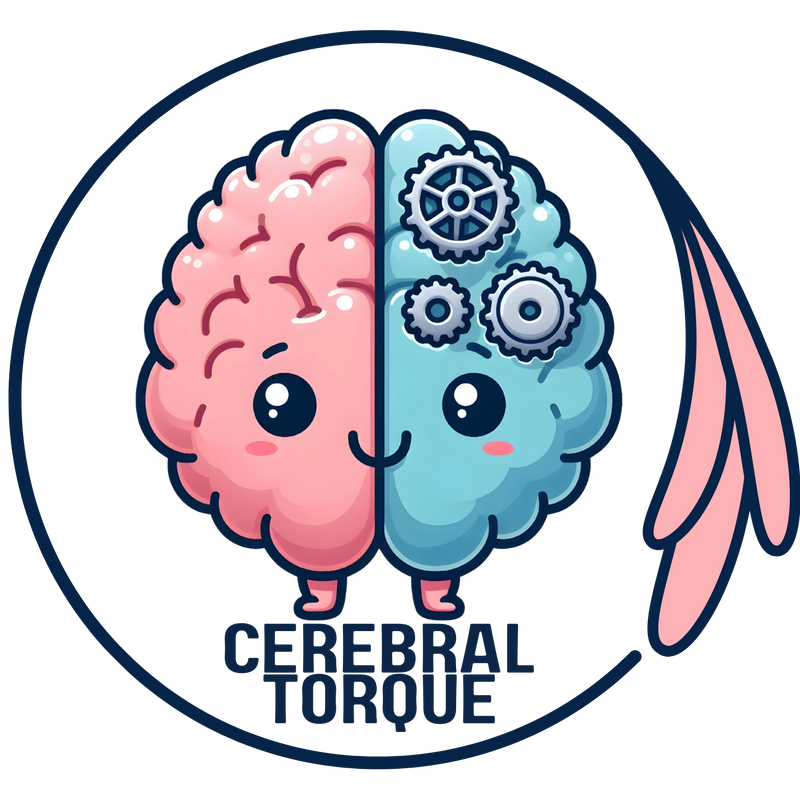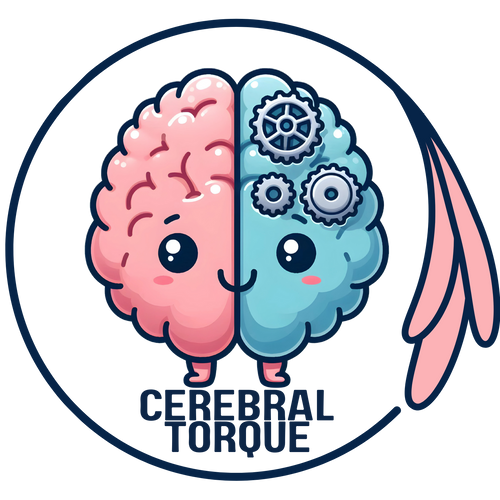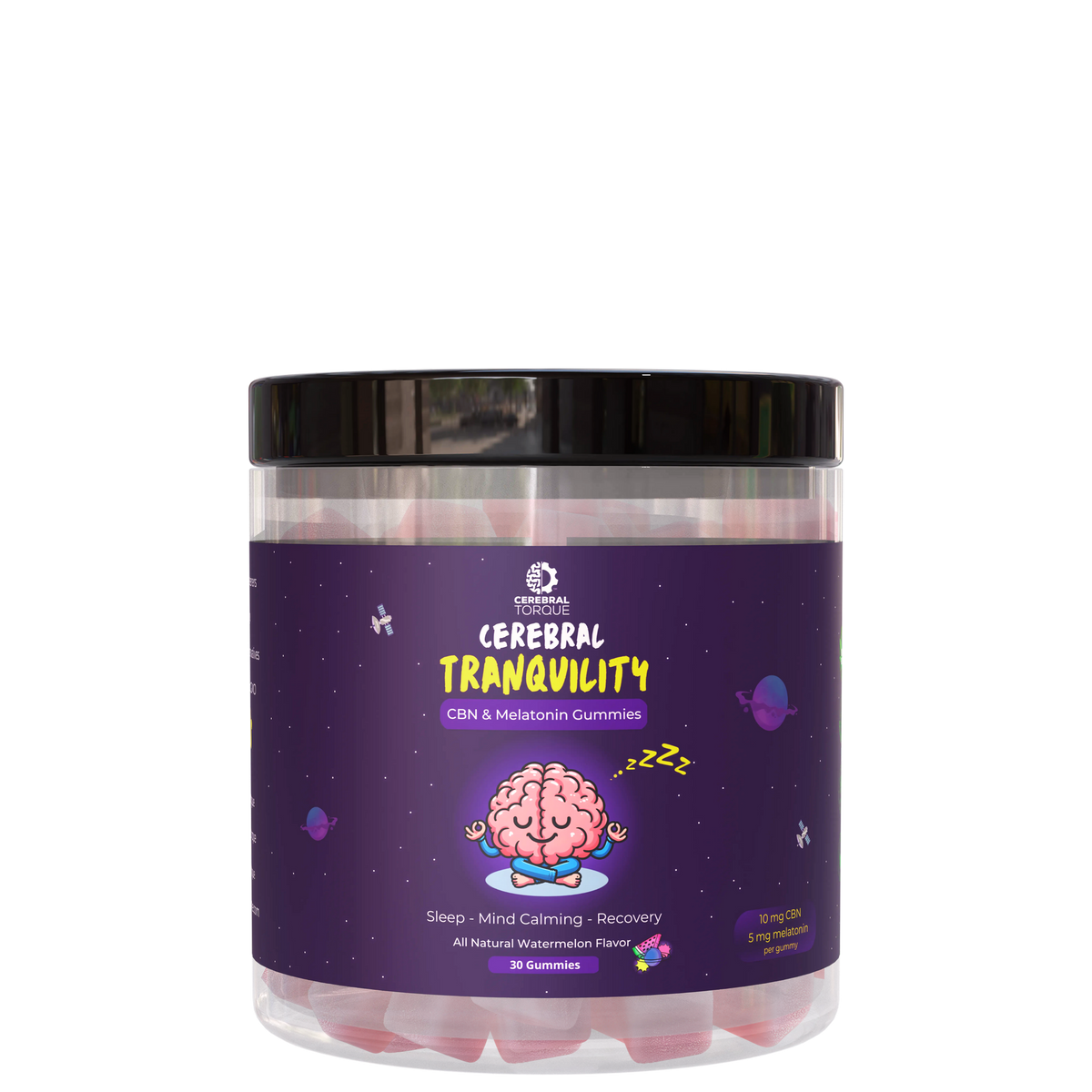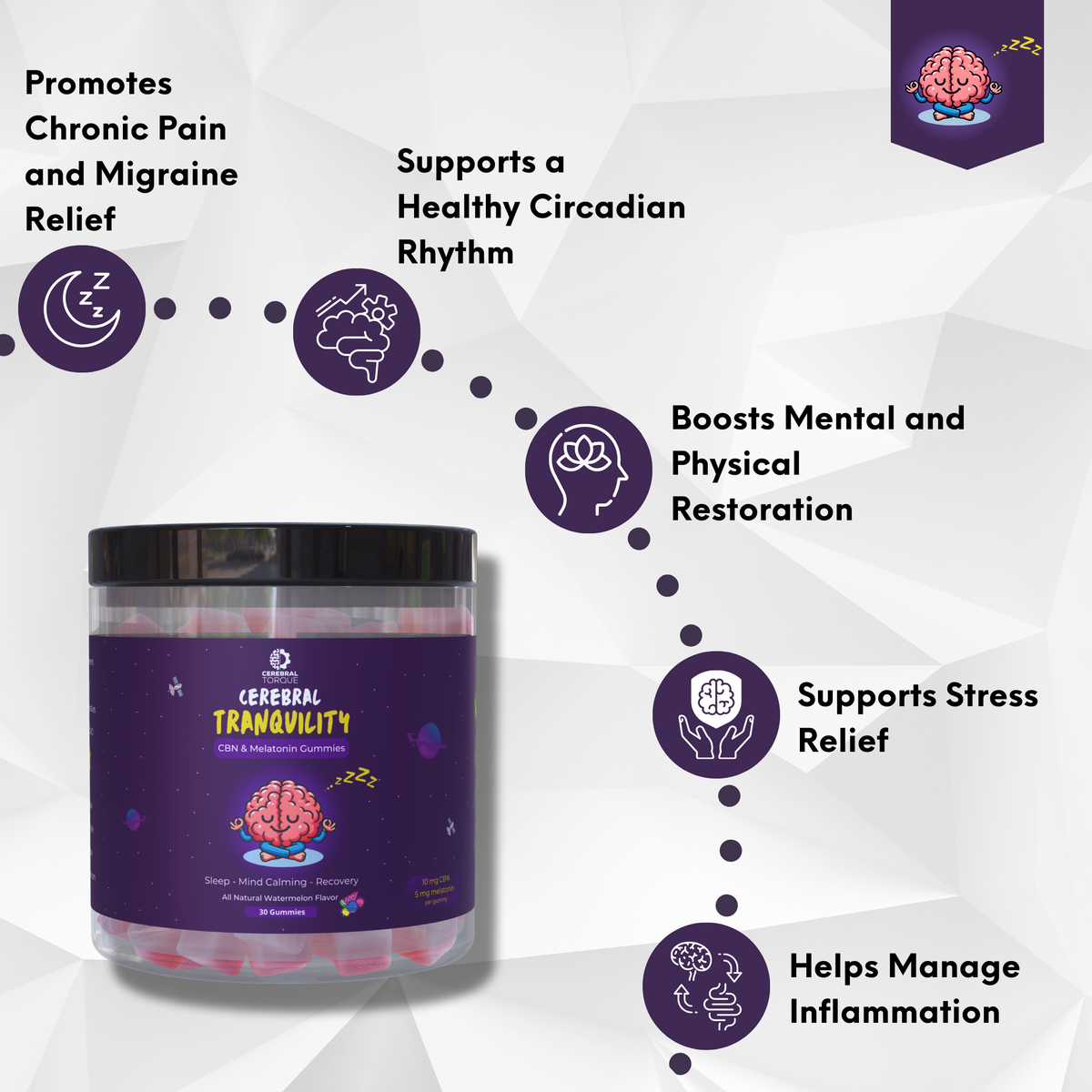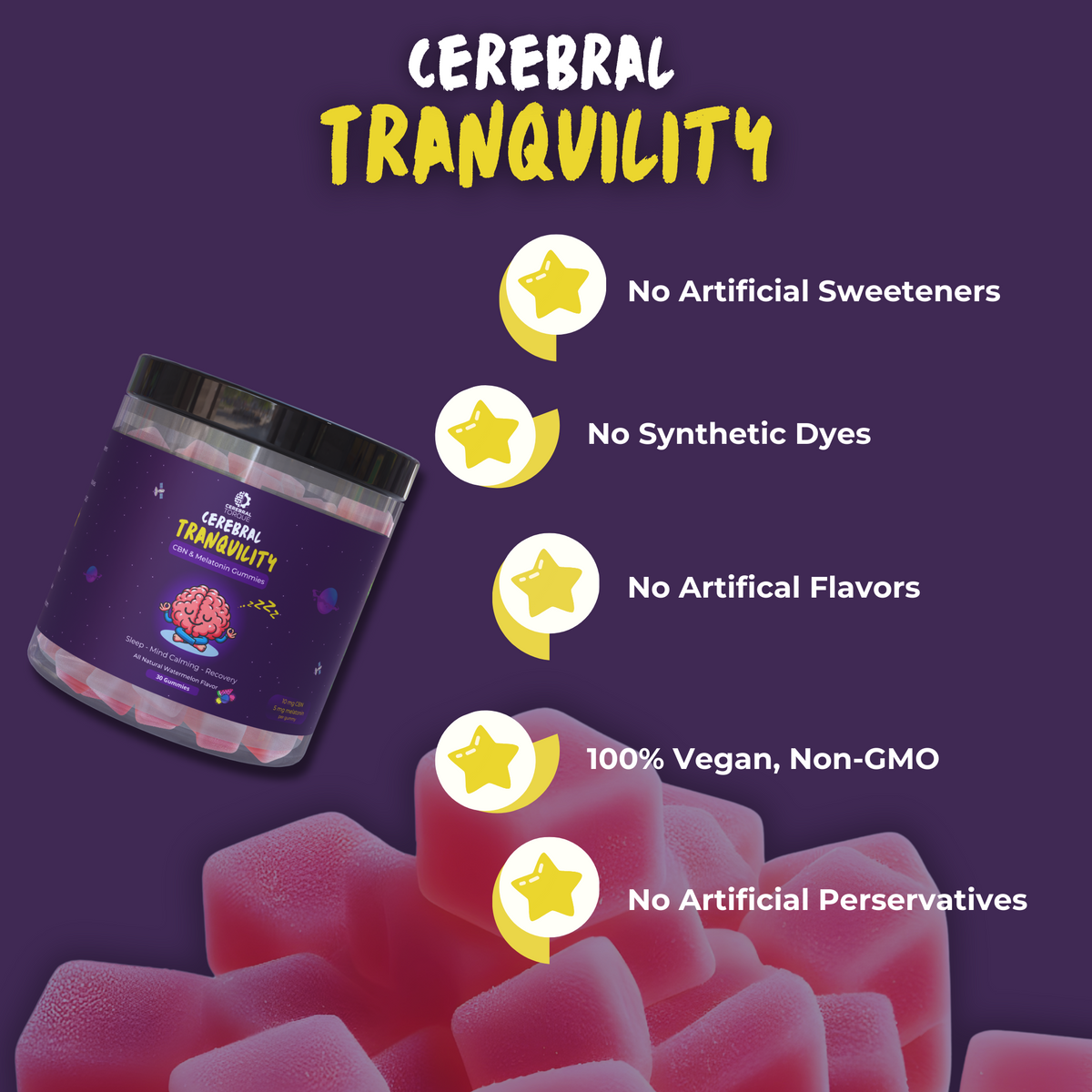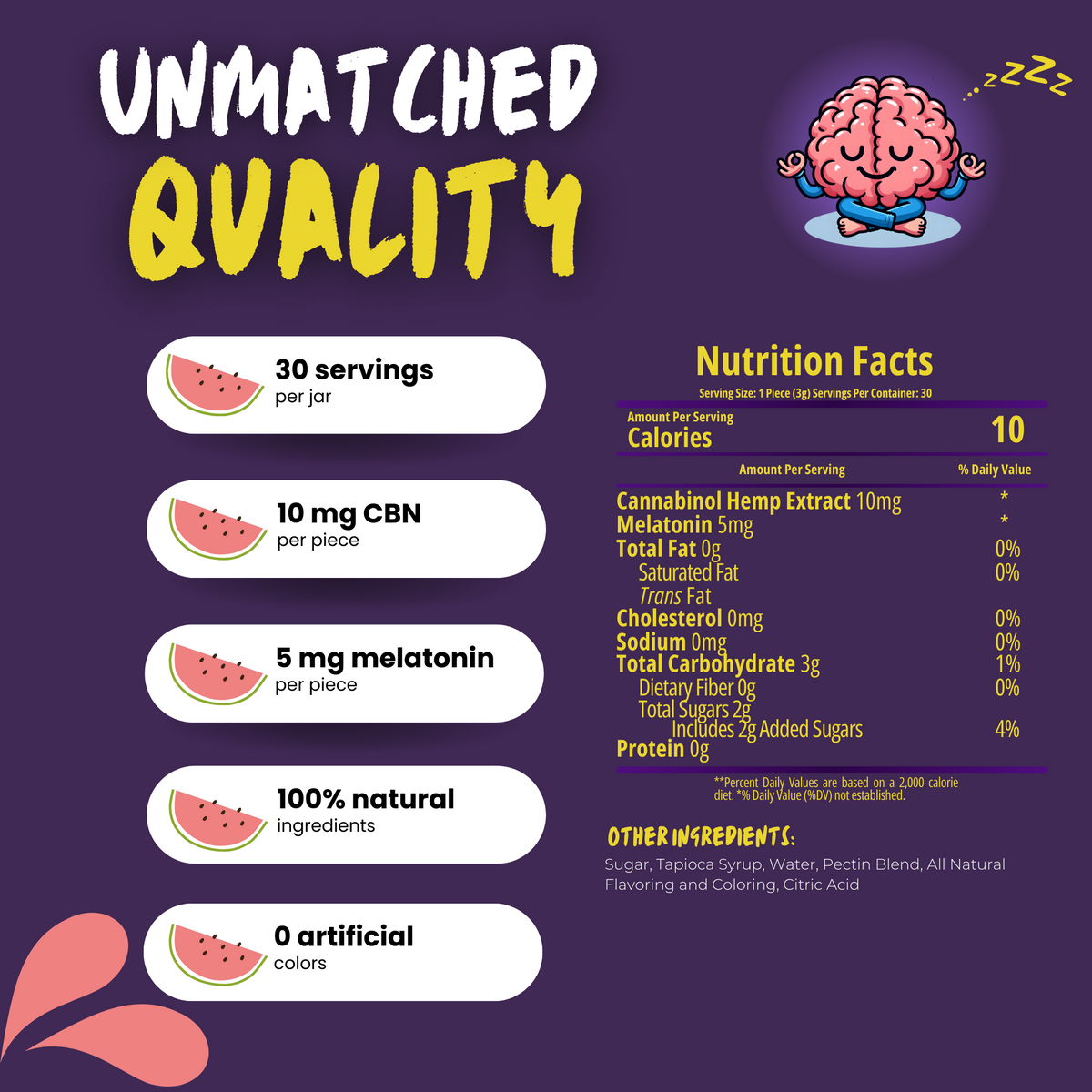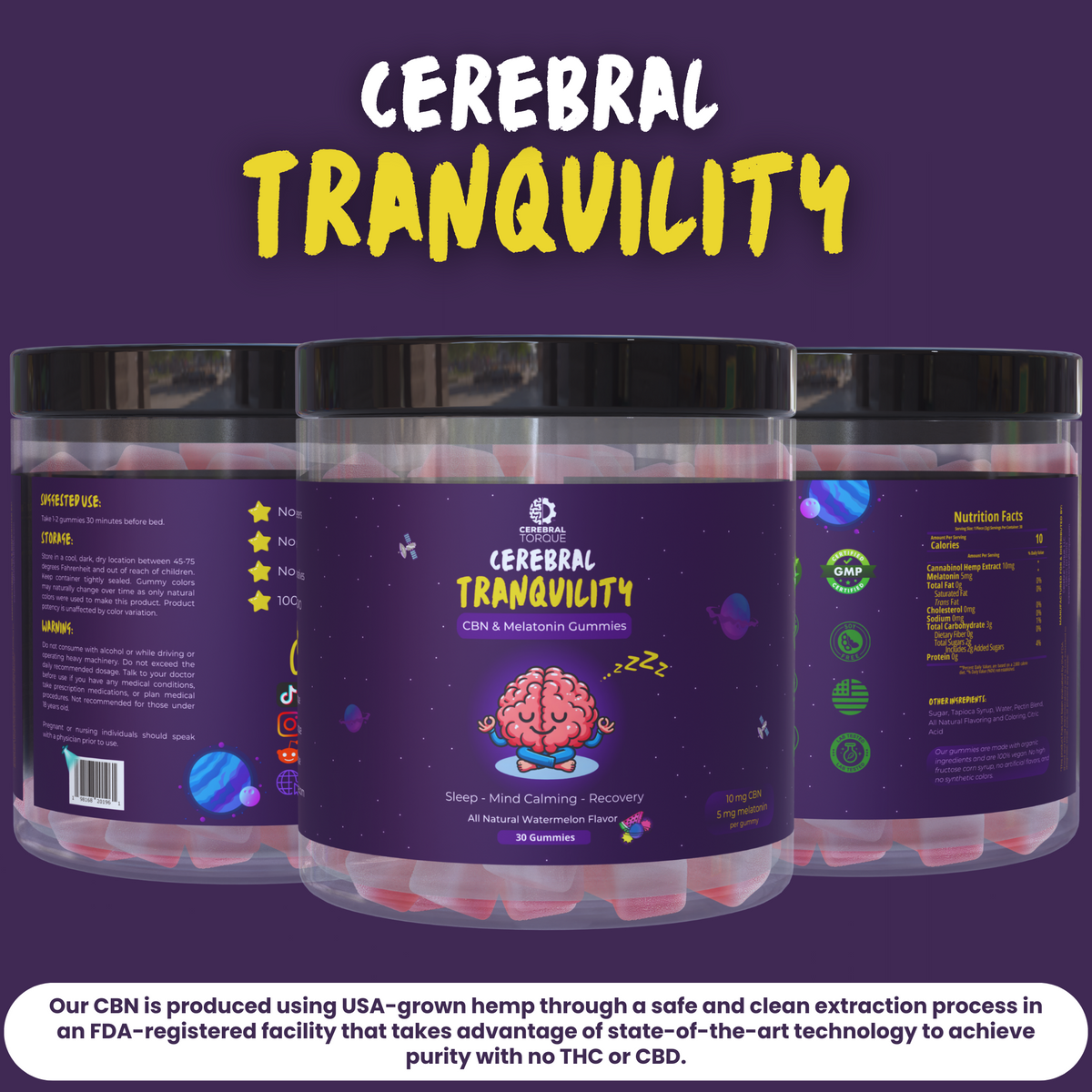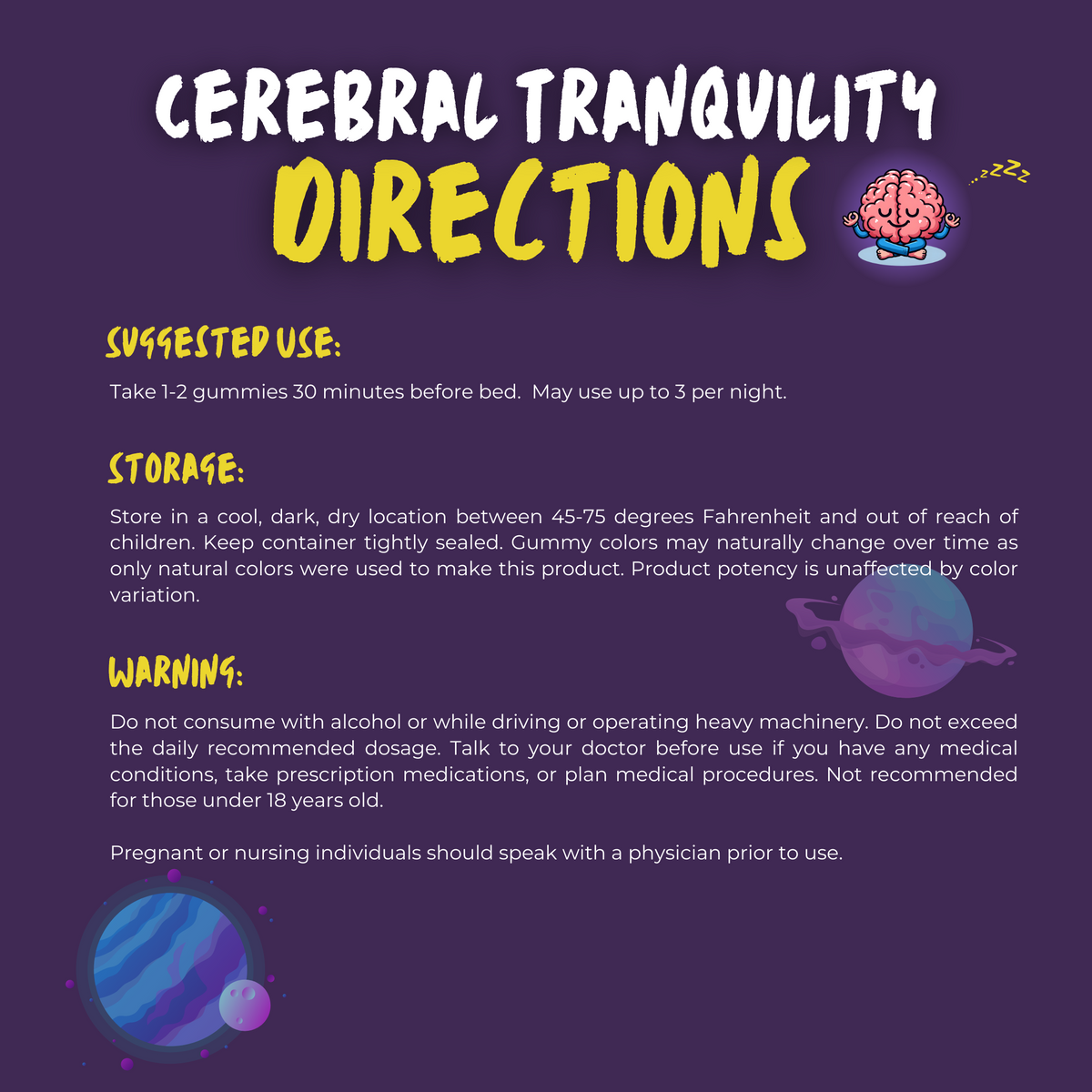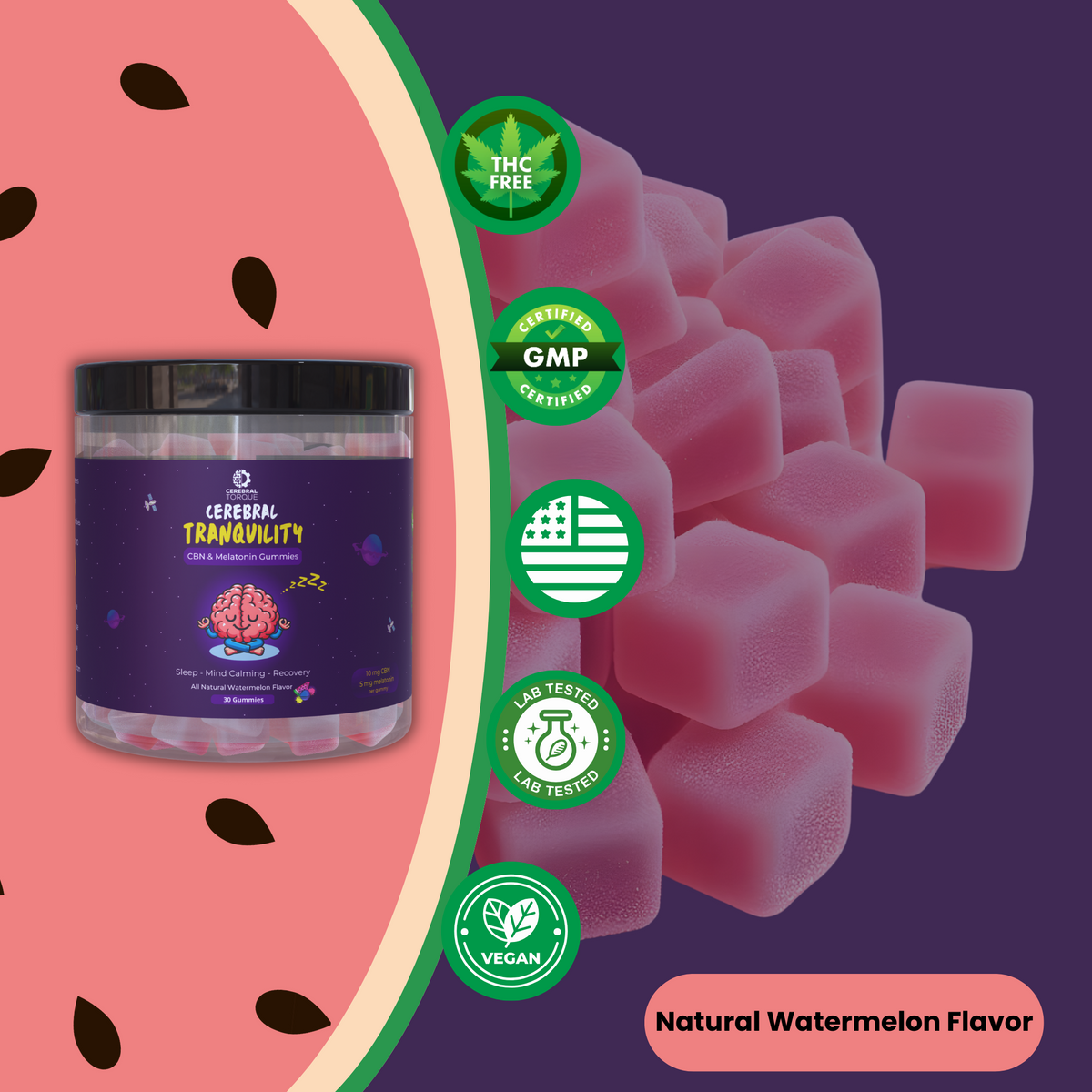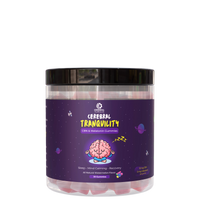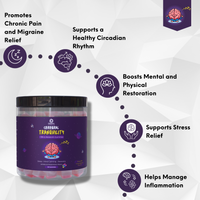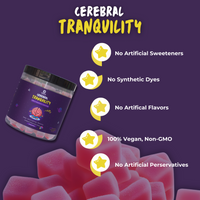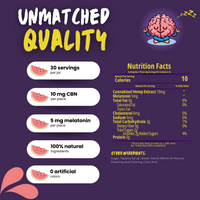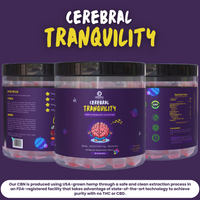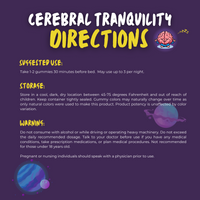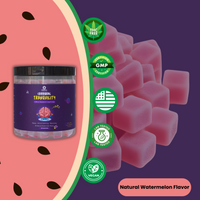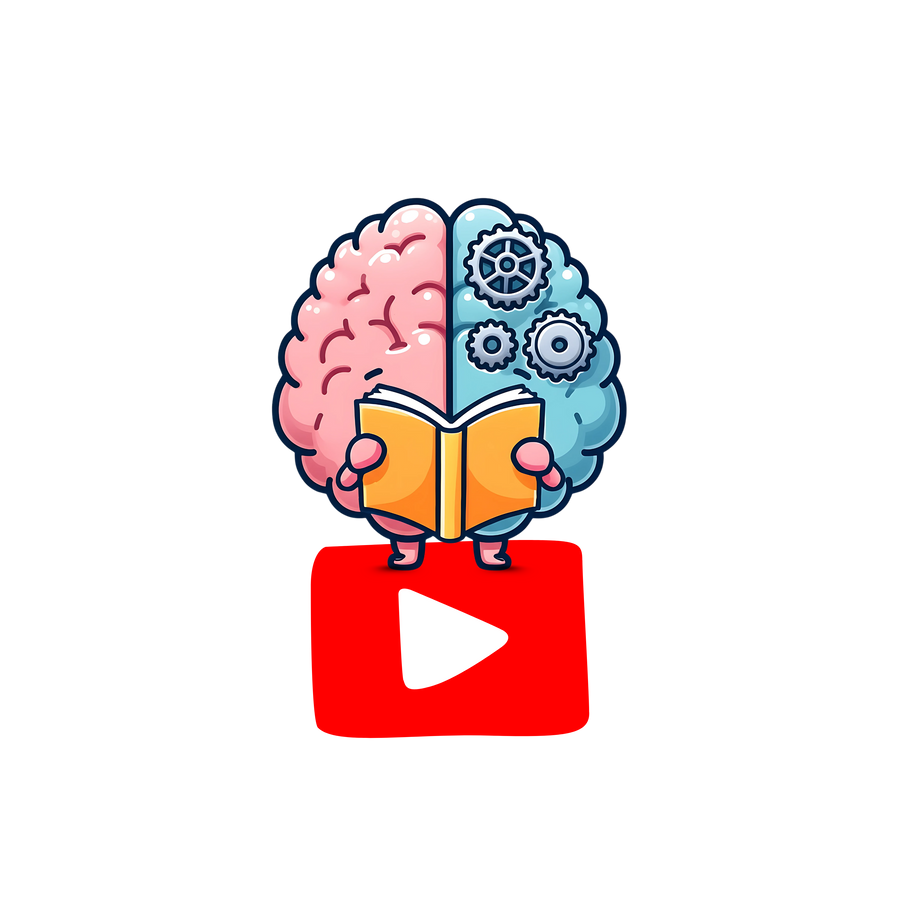Cerebral Tranquility Nighttime Gummy with CBN
-
Product Info
CBN + Melatonin Gummies
Advanced Sleep & Migraine Support
Made with pure and precisely dosed cannabinol (CBN) using state-of-the-art technology and melatonin, our naturally-flavored watermelon CBN sleep gummies harness the power of hemp to promote relaxation and ease tension. This synergistic combination works to:
- Calm overactive nerves*
- Reduce inflammation*
- Quiet pain signals*
- Soothe the mind*
- Guide your body into restorative sleep*
The special combination of CBN + melatonin leverages their complementary therapeutic effects to deliver powerful support for:- Insomnia*
- Chronic Pain*
- Migraine headaches*
✓ 10mg CBN + 5mg Melatonin per Gummy (NO THC!) ✓ Legal in ALL 50 States ✓ 100% Naturally Flavored Watermelon Taste ✓ No Artificial Colors or Preservatives ✓ Vegan, Non-GMO, Gluten-Free ✓ Made in an FDA-Registered Facility Under cGMP Guidelines ✓ Lab Tested for Quality and Compliance* These statements have not been evaluated by the FDA. This product is not intended to diagnose, treat, cure, or prevent any disease. Always consult with your healthcare professional before starting any new regimen.
Cerebral Tranquility FAQ
Sun, Sep 14, 25
Neuroimaging Differences Between Migraine Types: Aura vs. Without Aura
Discover the latest neuroimaging research revealing key brain differences between migraine with aura and migraine without aura.
Thu, Sep 04, 25
Understanding Migraine Prodrome
Discover the migraine prodrome phase: 36 warning symptoms that occur 1-6 hours before headache onset. Learn timing patterns, predictive confidence levels, and new treatment approaches based on groundbreaking 2025 research...
Thu, Aug 07, 25
Dizziness and Migraine: When is it Vestibular Migraine?
Dizziness and migraine: Learn when dizziness is vestibular migraine vs BPPV, Meniere's disease, or vascular causes. Guide covers symptoms, diagnosis, cutaneous allodynia, and treatment options for recurrent dizziness episodes.
Mon, Aug 04, 25
Evidence-Based Guide to Migraine Nutraceuticals and Herbal Options
Evidence-based guide to natural migraine treatments including riboflavin, magnesium, ginger, and CoQ10. Compare effectiveness, dosing, and safety of 15+ nutraceuticals and herbal remedies for migraine prevention and acute treatment with...
